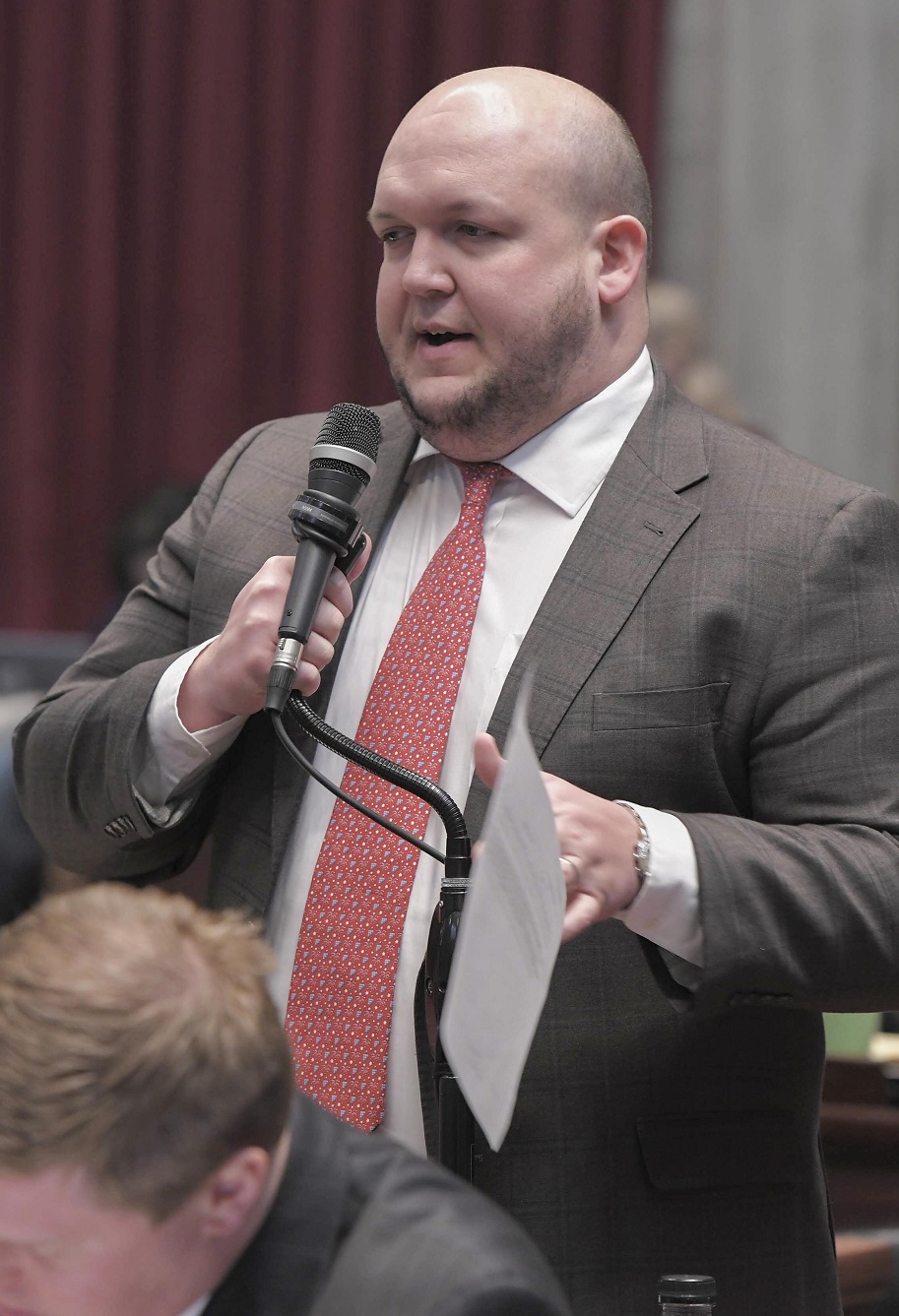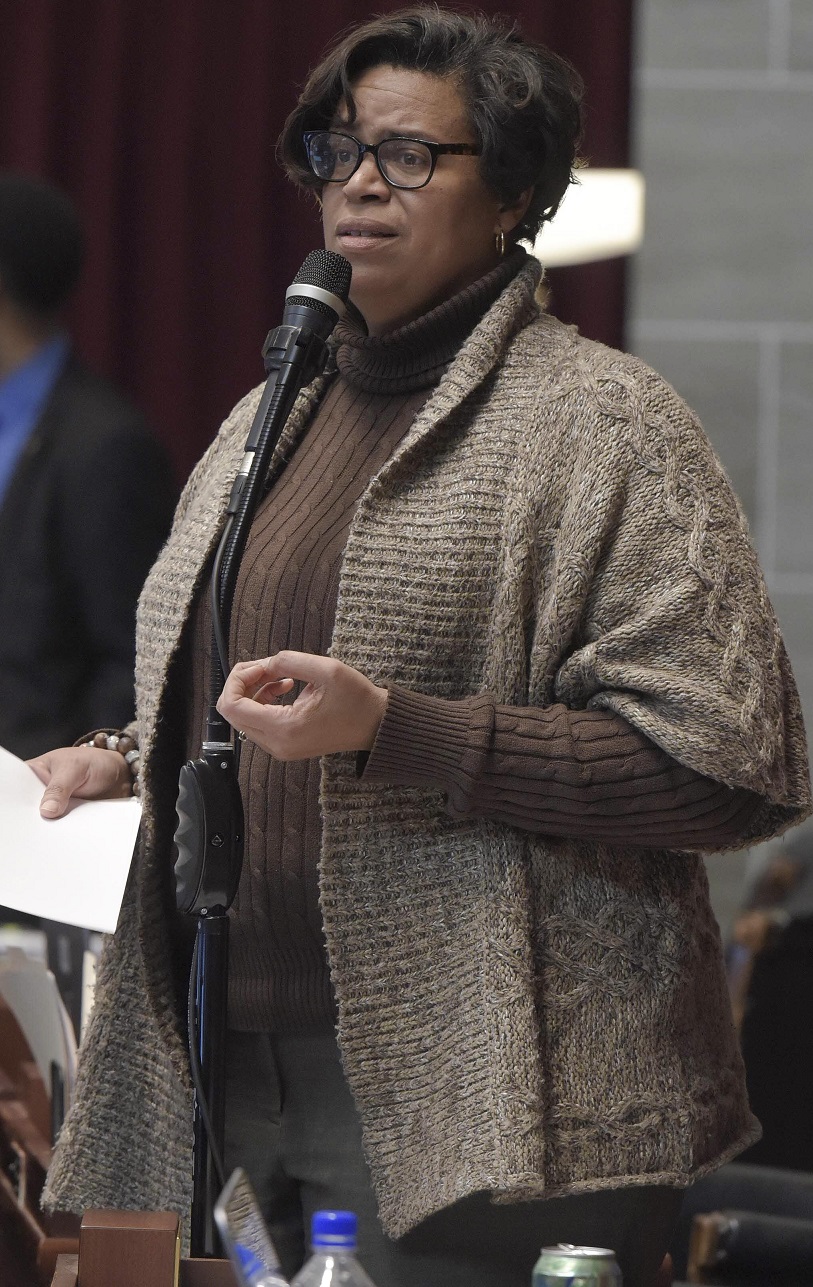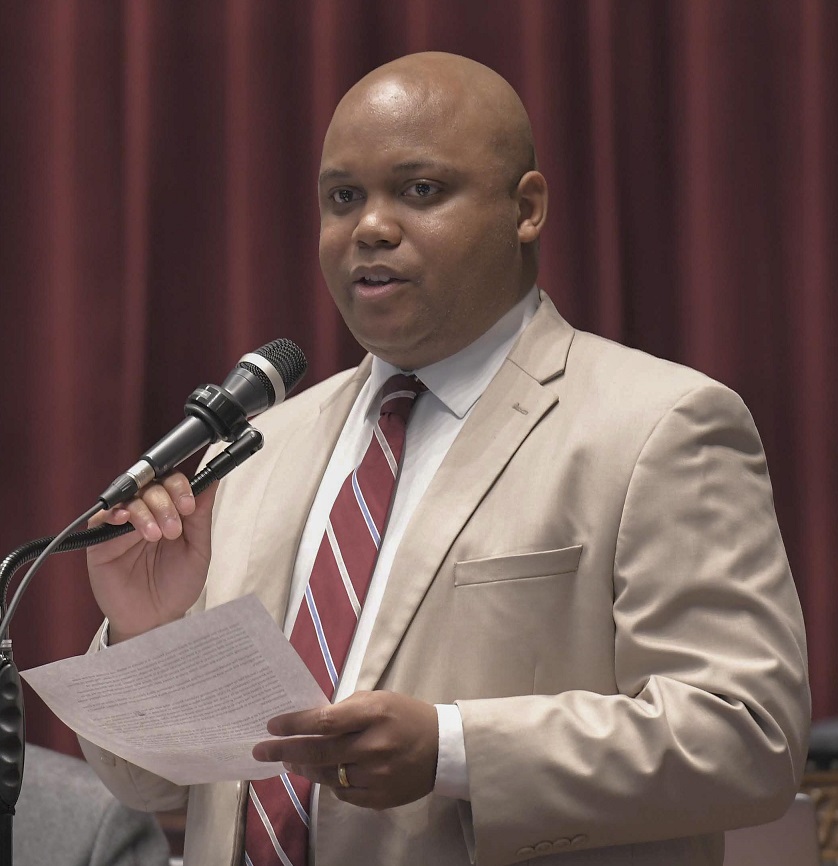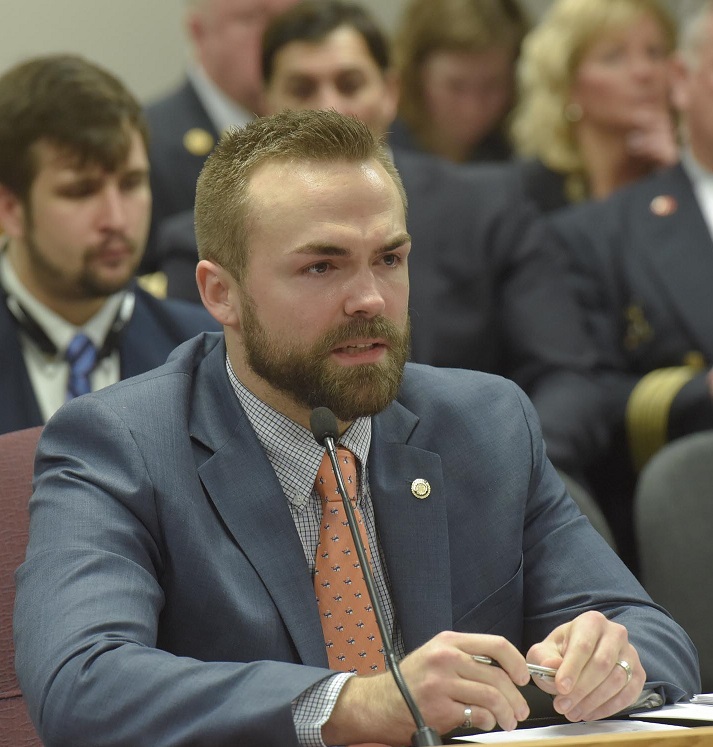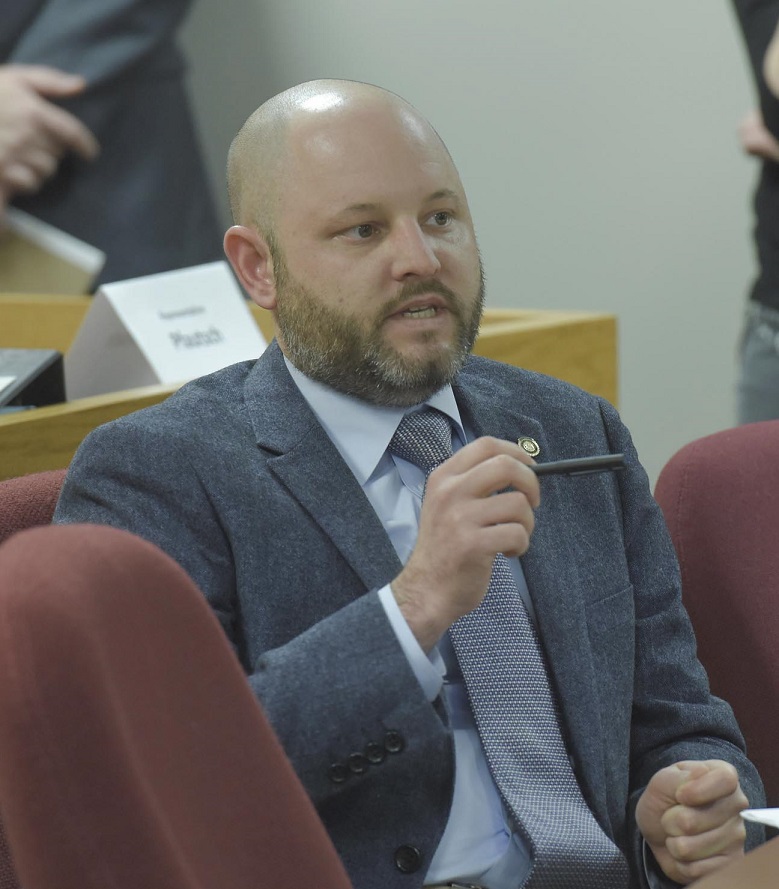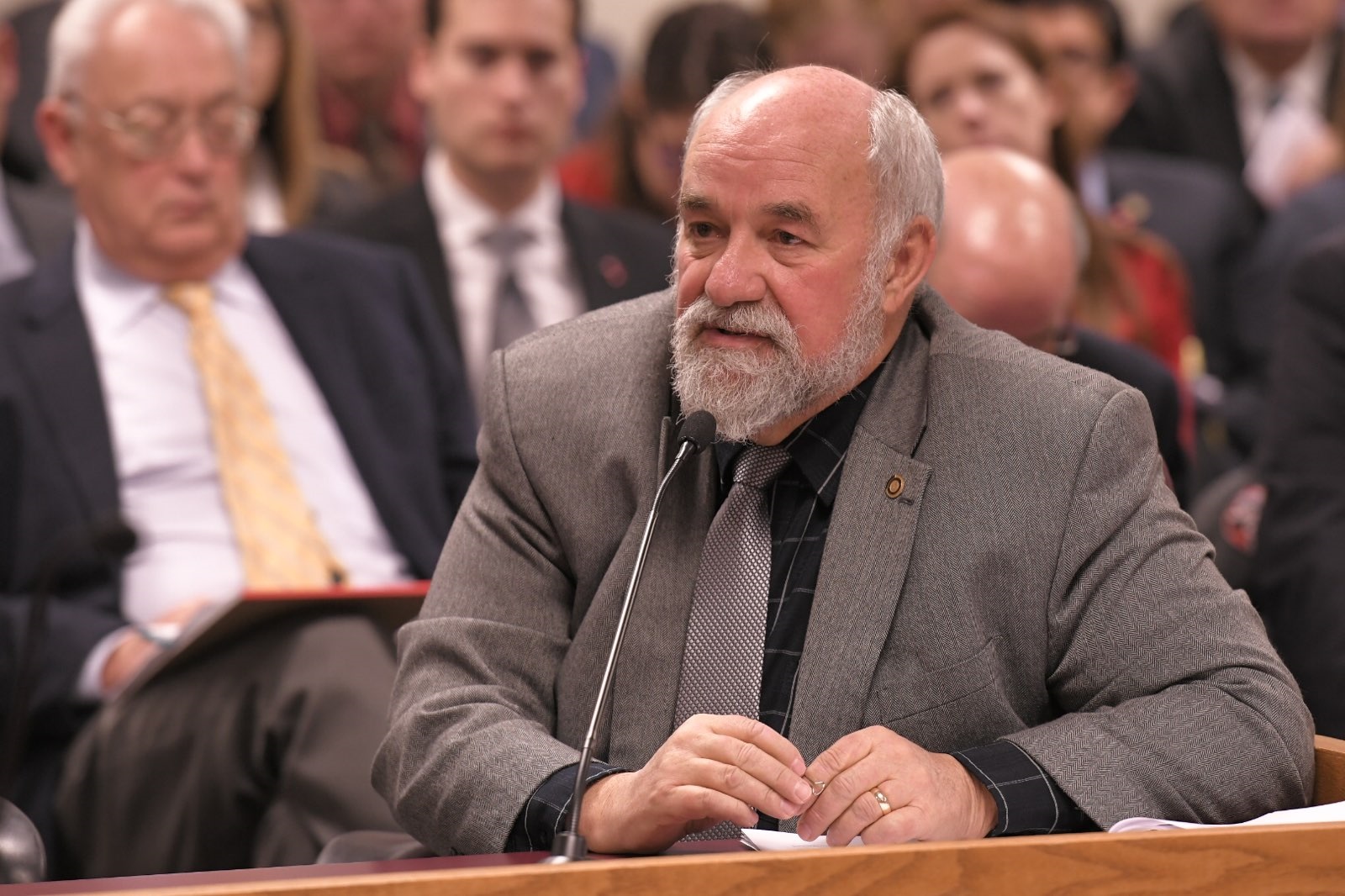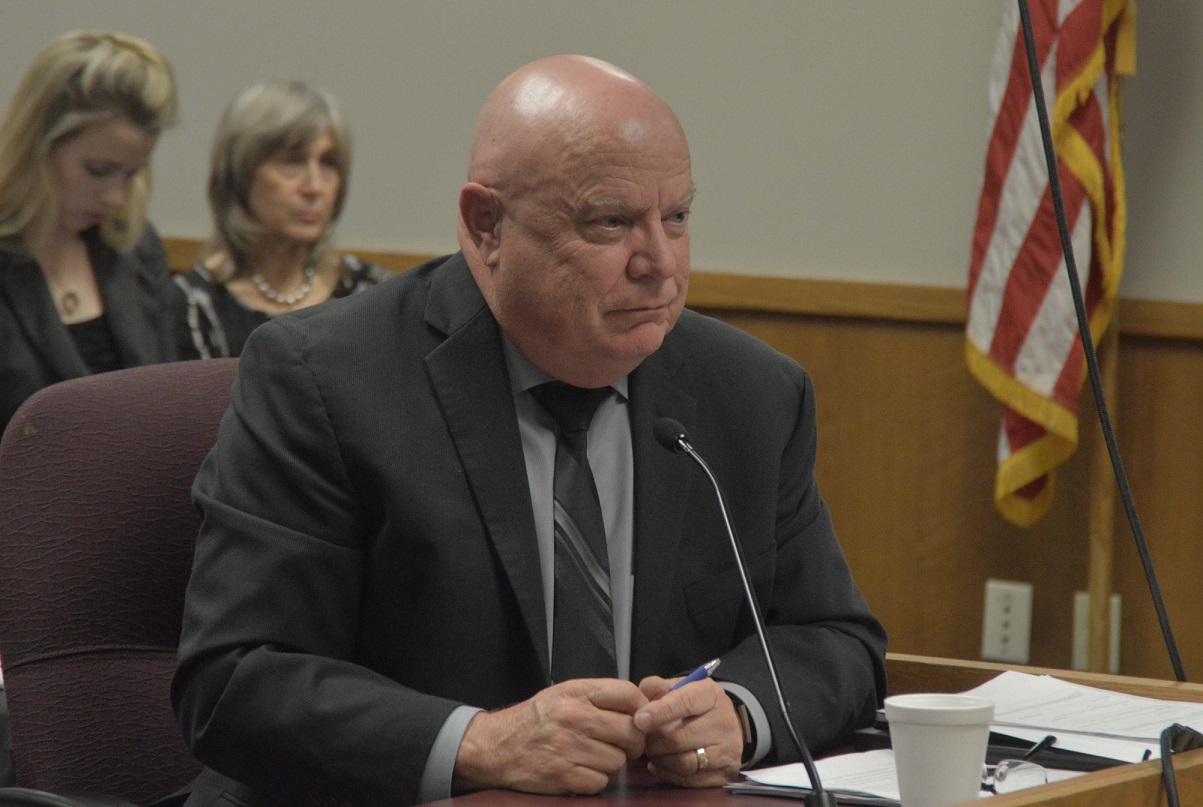A state House representative says his review of the Department of Revenue uncovered ways the state could save up to $36-million dollars.

St. Louis Republican David Gregory presented to the House Budget Committee what he called a, “Fiscal Opportunity Audit” of the Department. He explained that he spent 160 hours over several months studying the department, meeting with its staff, and comparing it to counterparts in other states. He said he found a number of ways the state could save money or generate revenue.
At least one of his findings has come up in other reviews of Missouri tax policy including Governor Eric Greitens’ (R) tax cut plan, and that concerns the state’s business sales tax discount. Missouri businesses that remit to the state in a timely manner the sales tax they collect get a 2-percent discount. Gregory said of neighboring states three have no such discount and four cap how much money businesses can retain. Missouri’s discount is the second highest among all states.
Gregory said he also found that capping the state’s withholding tax discount – a discount that among the states is unique to Missouri – the state could save up to $13-million a year.
As for revenue generation, Gregory said for the Department to hire three more people to investigate notices of auto sales could generate more than $3-million a year. Hiring two more people to investigate the paying of sales taxes on vehicle purchases might result in $700,000 a year more revenue.
Gregory also looked at what the Department is spending on supplies and that led him to Missouri Vocational Enterprises. People incarcerated in state prisons work for MVE making products including furniture, clothing, notepads, and a variety of other products. All state agencies are required by law to purchase any product they need from MVE if it’s made there.
Gregory said when he looked into one specific product, a chair purchased from MVE by the Department, he found that, “the exact same chairs sell online at Office Depot for $150. Our Department of Revenue paid almost $400 a chair. That’s too much. That’s way too much,” said Gregory. “I like the MVE. I love the program. I think it’s a great idea and we’re going to work with them, but paying $400 – requiring a $400 spend on chairs is absolutely ridiculous.”
Overall Gregory said the Department spent $4.2-million a year with MVE.
“If we could get the MVE to commercial rates of one-third of what it is … even if we could just do a 50-percent cut … that’s $2.1-million a year in savings,” said Gregory, who said he’s been talking to MVE’s director and believes changes to that agency’s pricing can be implemented.
In looking at size, Gregory found that Indiana’s Department of Revenue covers about half-a-million more residents over about the same land size with 822 employees compared to 1,145 in Missouri’s Department. Gregory said he has identified 283 employees he believes the Department could cut without falling behind in its operations.
Gregory emphasized to the committee that his findings were just that; not recommendations or proposals. The budget subcommittee that deals with the Department will consider whether to explore them further or act upon them.
House Budget Committee Chairman Scott Fitzpatrick said the Department will be given time to react, “As opposed to us doing it through the budget right now and maybe forcing the changes to occur too fast.”
“What happens now is I want to see to it that we implement and execute on those observations if the budget committee and the General Assembly agrees with me,” said Gregory. “A lot of them aren’t things you can just do overnight, so generally like I said in my presentation, my recommendation’s going to be that we work with management over a course of 12, 18, 24 months and see what we can do together to execute.”
Gregory said any changes the Department does experience could take years and some could require legislation. At some point he hopes to see a similar review done with other state agencies.
